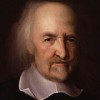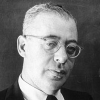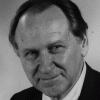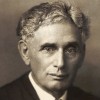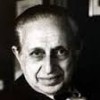He that wrestles with us strengthens our nerves and sharpens our skill. Our antagonist is our helper.
Edmund Burke (1729-1797) Anglo-Irish statesman, orator, philosopher
Reflections on the Revolution in France (1790)
(Source)
Quotations about:
conflict
Note not all quotations have been tagged, so Search may find additional quotes on this topic.
Hereby it is manifest that during the time men live without a common power to keep them all in awe, they are in that condition which is called war; and such a war as is of every man against every man.
Whatsoever therefore is consequent to a time of Warre, where every man is Enemy to every man; the same is consequent to the time, wherein men live without other security, than what their own strength, and their own invention shall furnish them withall. In such condition, there is no place for Industry; because the fruit thereof is uncertain; and consequently no Culture of the Earth; no Navigation, nor use of the commodities that may be imported by Sea; no commodious Building; no Instruments of moving, and removing such things as require much force; no Knowledge of the face of the Earth; no account of Time; no Arts; no Letters; no Society; and which is worst of all, continuall feare, and danger of violent death; And the life of man, solitary, poore, nasty, brutish, and short.
Never contend with a Man who has nothing to Lose.
[No empeñarse con quien no tiene qué perder.]
Baltasar Gracián y Morales (1601-1658) Spanish Jesuit priest, writer, philosopher
The Art of Worldly Wisdom [Oráculo Manual y Arte de Prudencia], § 172 (1647) [tr. Jacobs (1892)]
(Source)
(Source (Spanish)). Alternate translations:
Never to engage with him that hath nothing to lose.
[Flesher ed. (1685)]
Do not engage with him who has nothing to lose.
[tr. Fischer (1937)]
Never compete with someone who has nothing to lose.
[tr. Maurer (1992)]
Change means movement. Movement means friction. Only in the frictionless vacuum of a nonexistent abstract world can movement or change occur without that abrasive friction of conflict.
Saul Alinsky (1909-1972) American community organizer, writer.
Rules for Radicals, “The Purpose” (1971)
(Source)
There are also conflicts about important things or ideas. In such cases I am more impressed by the extreme importance of being on the right side, than I am disturbed by the revelation of the jungle of confused motives, private purposes, and individual actions (noble or base) in which the right and the wrong in actual human conflicts are commonly involved.
J.R.R. Tolkien (1892-1973) English writer, fabulist, philologist, academic [John Ronald Reuel Tolkien]
Notes on W. H. Auden’s review of Return of the King (1956)
(Source)
Auden's review: "At the End of the Quest, Victory," New York Times Book Review (1956-01-22).
Tolkien never sent or shared these notes. Reprinted in Humphrey Carpenter, ed., The Letters of J.R.R. Tolkien, #183 (1981).
Hampden, on the other hand, was for vigorous and decisive measures. When he drew the sword, as Clarendon has well aid, he threw away the scabbard. He had shown that he knew better than any public man of his time how to value and how to practice moderation. He knew that the essence of war is violence, and that moderation in war is imbecility.
Thomas Babington Macaulay (1800-1859) English writer and politician
“John Hampden,” Essays Contributed to the Edinburgh Review, Vol. 1 (1843)
(Source)
Review of Lord Nugent, Some Memorials of John Hampden, His Party, and His Times (1831).
To fight is a radical instinct; if men have nothing else to fight over they fight over words, fancies, or women, or they will fight because they dislike each other’s looks, or because they have met walking in opposite directions. To knock a thing down, especially if it is cocked at an arrogant angle, is a deep delight of the blood.
George Santayana (1863-1952) Spanish-American poet and philosopher [Jorge Agustín Nicolás Ruíz de Santayana y Borrás]
The Life of Reason or The Phases of Human Progress, vol. 2 “Reason in Society” (1905)
(Source)
Full and free expression of the right by the citizen is ordinarily also his duty; for its exercise is more important to the Nation than it is to himself. Like the course of the heavenly bodies, harmony in national life is a resultant of the struggle between contending forces. In the frank expression of conflicting opinions lies the greatest promise of wisdom in governmental action.
EDGAR: Know thou this: that men
Are as the time is; to be tender-minded
Does not become a sword.William Shakespeare (1564-1616) English dramatist and poet
King Lear, Act 5, sc. 3, l. 35ff (5.3.35-37) (1606)
(Source)
I cannot believe that the purpose of life is to be “happy.” I think the purpose of life is to be useful, to be responsible, to be honorable, to be compassionate. It is, above all, to matter: to count, to stand for something, to have made some difference that you lived at all.
Leo C. Rosten (1908-1997) Polish-American author and political scientist
“Credo,” Passions and Prejudices (1978)
(Source)
This appears to be the final iteration of a thought that Rosen used on numerous occasions. In "On Finding Truth: Abandon the Strait Jacket of Conformity," Speech, National Book Awards, New York City, as reprinted in The Sunday Star (8 Apr 1962):
The purpose of life is not to be happy -- but to matter, to be productive, to be useful, to have it make some difference that you lived at all.
In a later essay, "Words To Live By: The Real Reason For Being Alive," This Week Magazine (20 Jan 1963):
THE PURPOSE OF LIFE is not to be happy. The purpose of life is to matter, to be productive, to have it make some difference that you lived at all. Happiness, in the ancient, noble sense, means self-fulfillment — and is given to those who use to the fullest whatever talents God or luck or fate bestowed upon them. Happiness, to me, lies in stretching, to the farthest boundaries of which we are capable, the resources of the mind and heart.
In "The Myths by Which We Live," The Rotarian (Sep 1965):
Finally there is the myth which gives me the greatest pain: the myth that the purpose of life is happiness, and that you ought to have fun, and that your children ought to have fun. Where was it written that life is so cheap? Where was it written that life is, or should be, or can ever be free of conflict and effort and deprivation and sacrifice? [...] [T]he purpose of life is not to be happy at all. It is to be useful, to be honorable. It is to be compassionate. It is to matter, to have it make some difference that you lived.
A variation of this quotation is misattributed to Ralph Waldo Emerson. More discussion of this quotation (including a shout-out to WIST for some of this research) here: The Purpose of Life Is Not To Be Happy But To Matter – Quote Investigator.


